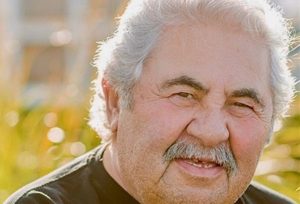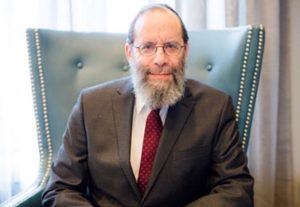 The Iranian government wants to finish building an atomic arsenal by 2009 or 2010, but according to Israel’s new foreign ministry spokesperson, Iran will be stopped in its tracks.
The Iranian government wants to finish building an atomic arsenal by 2009 or 2010, but according to Israel’s new foreign ministry spokesperson, Iran will be stopped in its tracks.
“The international community will prevent Iran from acquiring a nuclear weapon,” Arye Mekel, left, said in an interview last week.
Speaking by phone from his office in Jerusalem, Mekel said the major powers are in unanimous agreement that Iran cannot be permitted to develop a nuclear capability. “It’s out of the question.”
Mekel, the former Israeli consul general in New York City and before that Israel’s deputy representative to the United Nations, suggested that the UN can thwart Iran by imposing still more sanctions.
“Iran is very susceptible to economic pressure,” said Mekel, explaining that Tehran is vulnerable because it has failed to provide enough employment opportunities for the generation that has come of age since the 1979 Islamic revolution.
Even countries like Russia and China, which have so far been lukewarm to tougher UN sanctions, oppose Iran’s quest to build a weaponized nuclear program.
“No one, including China and Russia, wants to see a nuclear Iran,” said Mekel, who assumed his current position recently.
Israel is convinced that Iran is trying to produce an A-bomb, notwithstanding a recent U.S. intelligence report claiming that Iran froze its nuclear weapons program in 2003, he said.
Iran, he added, is also working on a long-range ballistic missile program.
Israel has irrefutable evidence that Iran is continuing to work on its nuclear program. “We know for a fact that Iran is trying to produce nuclear weapons.”
Iran could achieve its objective by 2009 or 2010, he warned.
Asked what Israel’s response would be in that case, he replied, “We don’t answer hypothetical questions.”
Turning to another issue, Mekel said that 2008 may be a “significant year in the peace process” if the Palestinians fulfil a key obligation under the 2003 “road map” peace plan.
“The Palestinians have to stop terrorism, and if they do, we may make progress,” said Mekel.
In a reference to Israeli Prime Minister Ehud Olmert’s summit meeting with Palestinian Authority President Mahmoud Abbas in the United States last November, he said, “Already we see some progress since Annapolis.”
Israel stands ready to meet all its commitments under the road map, including the dismantlement of unauthorized outposts in the West Bank, if the Palestinian side complies with its obligations. “Anything that’s illegal – the outposts – will eventually be removed,” Mekel said.
Mekel said Israel has no intention of building new settlements in the territories and has not built any there in the past decade. But Israel reserves to right to expand existing settlements to allow for “natural growth,” he noted.
Though warning that Israel’s century-long conflict with the Palestinians does not lend itself to a quick fix, Mekel said the time for a settlement may be ripe because Israel is militarily strong.
“Both sides will benefit tremendously from peace.”
Nevertheless, he acknowledged that the Hamas takeover of the Gaza Strip poses an obstacle to a lasting agreement.
“Eventually, the Palestinians themselves will solve this problem. They will find a way. It could be done very peacefully.”
In an allusion to Israel’s blockade of Gaza, he said, “Life in Gaza is difficult. People in Gaza will have an interest in getting rid of Hamas.”
The Israeli government will not even consider the possibility of negotiating with Hamas unless it abides by three cardinal conditions: recognizes Israel, renounces terrorism and accepts previous agreements signed by the Palestinian Authority.
When asked whether Israel should nonetheless sign a long-term truce with Hamas, he said, “We don’t talk to them. We have nothing to discuss. You don’t stop violence by giving in to terror.”
Mekel said Israel’s armed forces are doing their best to suppress Qassam rocket and mortar fire from Gaza aimed at settlements inside Israeli territory. “We are acting all the time, operating all the time. We’ve reduced the number of attacks and casualties.”
He would not speculate whether Israel would launch a full-scale invasion of Gaza should the situation warrant one.
But Mekel said that this option remains a possibility, even if Israel is deep into negotiations with the Palestinian Authority. “We’ll do what it takes to protect our citizens.”
Israel is prepared to resume bilateral negotiations with Syria. “We’re ready to talk to all our neighbours.”
However, Israel is hesitant to engage Syria when President Bashar Assad hosts such radical groups as Hamas and Islamic Jihad and assists Hezbollah. “We’re saying that Syria, while supporting these organizations, is not showing real intent to live in peace.”
Asked whether Israel is ready to meet Syria’s demand for a full withdrawal from the Golan Heights, Mekel said all issues will be on the table once talks get underway again.
Mekel declined to react directly to a comment made by Mohammed El Baradei – the head of the International Atomic Energy Agency – that Israel’s widely reported bombing of a Syrian nuclear facility last September had set “a bad precedent.”
“We don’t confirm it,” he said.
The security situation along the Lebanese border is better today than it was prior to the Second Lebanon War in the summer of 2006, he said. “The United Nations is there and Hezbollah has been pushed back, though the smuggling of weapons to Hezbollah still goes on.”
In closing, Mekel said Israel has reason to be thankful as it gets set to mark its 60th anniversary.
“We have to remember that 45 per cent of the Jewish people live in the Jewish state. We hope that more will settle in the next few years. We’re by far the strongest country in the region. Our economy is booming. Our high-tech industry is among the top 10 in the world. We have a lot to be grateful for.”






